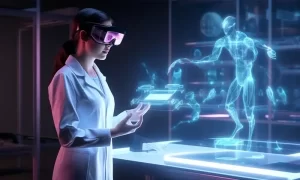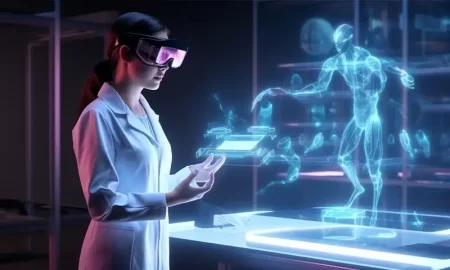Innovative Healthcare Trends That Will Change Your Life
Healthcare is an ever-evolving field, constantly adapting and integrating novel advancements. In today’s era of technological acceleration and scientific breakthroughs, several innovative trends are revolutionizing the healthcare landscape, promising to transform the way we perceive and experience medical care.
Telehealth Revolutionizing Access to Care
Telehealth, a groundbreaking innovation, has redefined healthcare accessibility. Through telehealth, patients can now consult with healthcare providers remotely, breaking geographical barriers. This trend has witnessed a significant upsurge, especially during the pandemic, offering convenience and immediate access to medical expertise from the comfort of one’s home.
AI-Powered Healthcare Solutions
Artificial Intelligence (AI) has made remarkable strides in healthcare. From predictive analytics to personalized treatment plans, AI-powered solutions are optimizing diagnostics and treatment outcomes. Machine learning algorithms analyze vast datasets to identify patterns, aiding in early disease detection and enhancing precision medicine, ultimately improving patient care.
Wearable Technology Enhancing Personalized Care
The integration of wearable technology into healthcare is transforming preventive care. Smart devices like fitness trackers, smartwatches, and health monitors provide real-time health data, enabling individuals to monitor vital signs, track fitness goals, and even detect anomalies promptly. This technology empowers users to take proactive steps towards maintaining their well-being.
Virtual Reality Redefining Therapy and Training
Virtual Reality (VR) has extended its reach beyond gaming and entertainment into the healthcare realm. In therapies, VR is proving to be a powerful tool for pain management, mental health treatments, and even training healthcare professionals. Its immersive nature offers new avenues for rehabilitation and therapy, providing patients with engaging and effective treatment experiences.
Precision Medicine Tailoring Treatment Approaches
The concept of precision medicine revolves around customizing healthcare interventions based on an individual’s genetic makeup, lifestyle, and environmental factors. By understanding a patient’s unique biological characteristics, healthcare professionals can prescribe treatments specific to their needs, improving efficacy and reducing adverse effects.
Blockchain Securing Health Data
Blockchain technology is revolutionizing data security in healthcare. Its decentralized and encrypted nature ensures the integrity and privacy of medical records. By utilizing blockchain, health systems can securely store and share sensitive patient information, minimizing the risk of data breaches and enhancing trust between patients and providers.
3D Printing Revolutionizing Medical Manufacturing
The advent of 3D printing has brought a paradigm shift in manufacturing medical devices, prosthetics, and even human tissue. This technology enables the creation of patient-specific implants and customized medical equipment, fostering rapid innovation and accessibility while reducing costs.
Genomics Advancing Personalized Treatment
Advancements in genomic research have unveiled crucial insights into disease susceptibility and treatment response. Understanding an individual’s genetic predispositions enables healthcare practitioners to offer tailored interventions, opening avenues for proactive disease prevention and more effective treatments.
Augmented Reality Assisting in Surgical Procedures
Augmented Reality (AR) is making significant strides in aiding surgeons during complex procedures. By overlaying digital information onto the surgeon’s field of view, AR assists in precise navigation, enhancing accuracy and reducing the margin of error in surgeries, thereby improving patient outcomes.
Integrative Healthcare Embracing Holistic Well-being
The shift towards integrative healthcare emphasizes a holistic approach, combining conventional medicine with complementary therapies like acupuncture, yoga, and nutritional counseling. This approach acknowledges the interconnectedness of mind, body, and spirit, promoting overall wellness beyond mere symptom management.
In conclusion, the healthcare landscape is undergoing a transformative evolution, driven by innovative trends that promise to reshape patient care and experiences. From the advent of telehealth and AI-powered solutions to the integration of wearable technology and precision medicine, these advancements are poised to revolutionize healthcare delivery, enhance accessibility, and ultimately improve individual health outcomes. As these trends continue to progress, their impact on our lives will undoubtedly be profound, ushering in a new era of healthcare innovation and accessibility.












